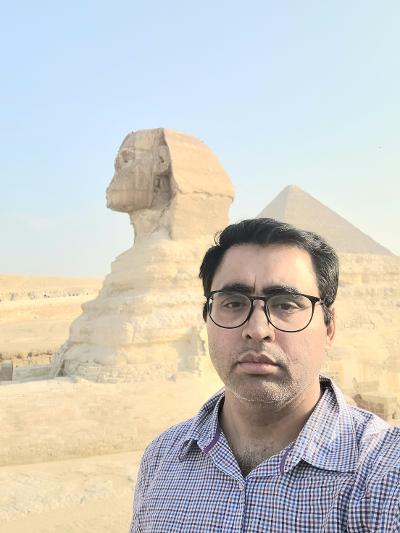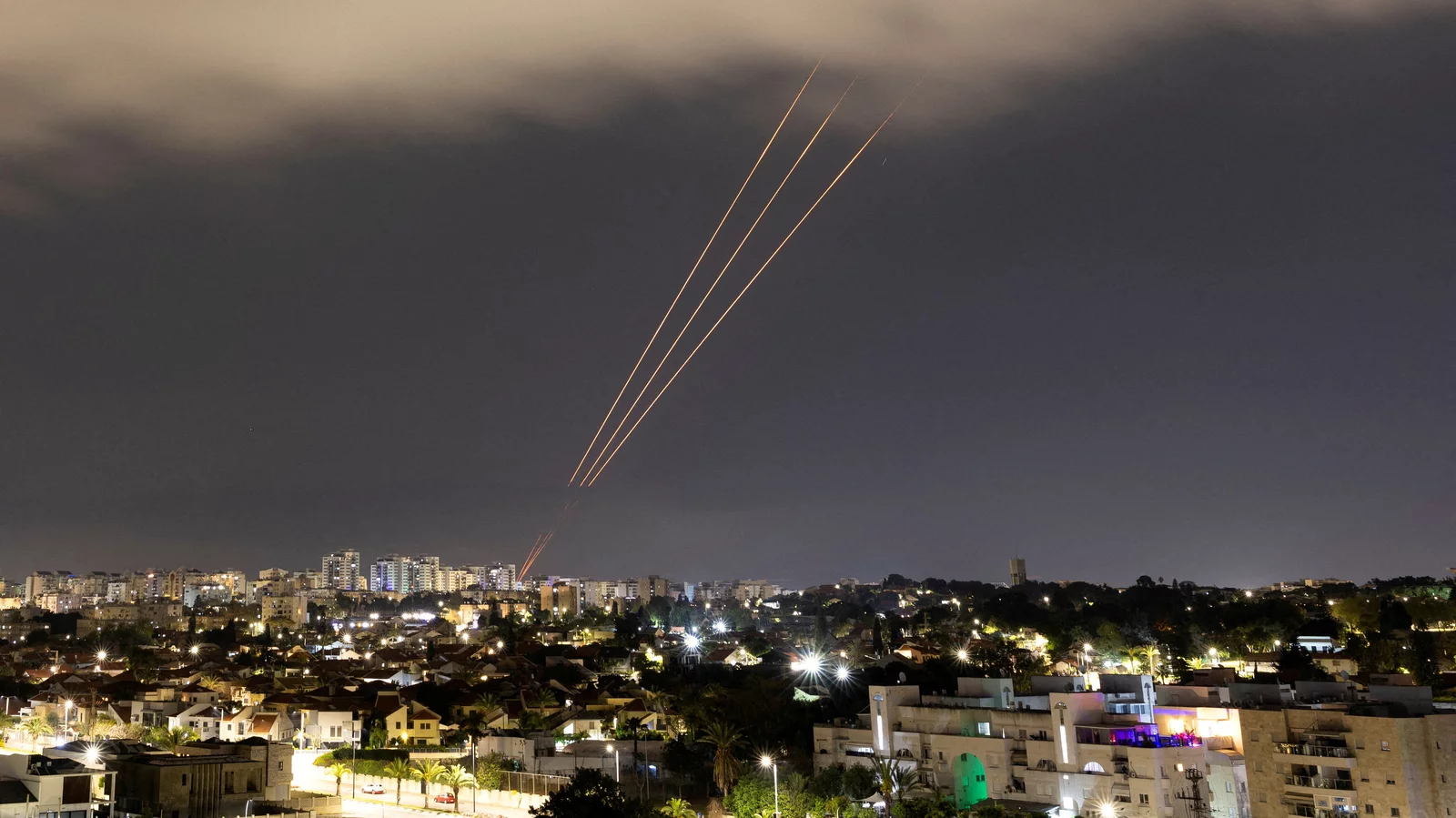Brigadier General Mohammad Reza Zahedi, a senior commander in the elite Quds Force of Iran’s Revolutionary Guard Corps (IRGC), and his deputy
Asma Jahangir; One-woman Army; EFSAS Commentary

Asma Jahangir, one of the staunchest human rights voices in Pakistan, died on February 11th 2018, at the age of 66 due to a heart attack. The activist's sudden death is a huge loss for not only the debate on Human Rights but mainly for her own country, Pakistan and its people.
"Tireless Protestant", as described by the Secretary-General of the United Nations, Asma Jahangir was born in Lahore, where she graduated from Kinnaird College as a lawyer and later became the first woman to serve as the President of the Supreme Court Bar Association of Pakistan. She was also the co-founder of the Women’s Action Forum.
In the international sphere, she served as the Chairperson of the Human Rights Commission and also as the Special Rapporteur on Extrajudicial, Summary or Arbitrary Execution and the United Nations Special Rapporteur on Freedom of Religion or Belief.
Having severely opposed the military and the army-backed Pakistani Government, she was arrested for the first time in 1983 when she participated in a procession organized by the Movement for the Restoration of Democracy against the military regime of military dictator, Zia-ul-Haq. Later in 2007, the Pakistani Government put her under house arrest for supporting the debate on secular civil society and defending the Christian minority in Pakistan, whose members were constantly accused of blasphemy - a crime, which under the country's controversial laws could lead to the death penalty. She also represented several civil society organizations that were threatened with shutdown as well as families of countless disappeared activists over the course of her career.
She was a recipient of many International Awards, including the UNESCO/Bilbao Prize for the Promotion of a Culture of Human Rights, the 2010 Freedom Award and the 2014 Right Livelihood Award and a nomination for the Nobel Peace Prize in 2005. In a country like Pakistan, her work, unfortunately, came at a price as she constantly had to endure threats from extremist groups and persecution from the military. For decades, she fought bravely, and most of the time alone, for the neediest people in Pakistan and continued to advocate the causes of human rights, women's rights and democracy.
Her death represents a major loss for the human rights struggle in Pakistan, where enforced disappearances, violence against women and children, persecution of religious minorities, journalists, lawyers and human rights defenders, and violation of international law, are widespread. The United Nations has submitted several reports and sent numerous special fact-finding missions to the country over the past ten years to ascertain the situation of human rights in Pakistan, brought to the UN’s attention by courageous human rights defenders like her. The people of Pakistan have always lived in an extremist wave, characterized by threats and violence from, not only armed extremist groups such as the Taliban, but also by the Inter-Services Intelligence (ISI), the country’s powerful Intelligence agency, which has been accused of kidnapping, intimidation and killing of journalists who cross the way of the Military establishment. In 2013, leaked ‘official’ documents suggested that some intelligence officers had devised plans to kill Asma Jahangir for her critical statements against the country’s powerful Military.
Safeguarding fundamental human rights is a central urgency for Pakistan. The European community and the US have condemned the current and previous Governments of Pakistan on record for the violations of basic rights, freedom of expression and use of torture. Violations in Baluchistan and Gilgit Baltistan, a disputed region that has neither political autonomy nor a working legal system, is also of international concern, since ethnic and religious minorities living in these areas endure severe persecution by the State apparatus and terrorists supported by the Military regime. Over the past years, the Government of Pakistan and its armed forces have been directly responsible for human rights violations; the critical lack of enhancing democracy by establishing and empowering democratic institutions has lead the country to extreme poverty, slow economic growth, escalation of sectarian divisions and transformed it into a safe haven for dozens of extremist groups and wanted terrorists and criminals. Such scenario has not only disturbed the already fragile peace equilibrium in South Asia, but also poses a grave threat to the rest of the world.
The absence of Asma Jahangir leaves a vacuum in a country that will probably remain struggling to become a functioning democracy adherent to the Rule of Law while safeguarding basic human rights. The need for people like her – dedicated to defending human rights, religious minorities, speaking without fear against Islamization, blasphemy-laws and the Military Junta – is of great importance to a country where the Government fails to ensure rule of law and security with inefficient police and security-organs, that instead of protecting, act hostile against its own people.
Asma Jahangir was the personification of courage; An extraordinary woman who showed a mirror to the rulers and the people of Pakistan in an attempt to create a better society based on the tenets of introspection, freedom of speech and equality. She leaves behind a difficult legacy for the people - A legacy of a patriotic Pakistani who loved her country and did not want to see it become an epicentre of terrorism, radicalization and Military rule.
Asma belongs to the common Pakistani people, just as she fought her whole life to give the country back to its rightful owners; The People of Pakistan. May her struggle act as an inspiration for generations, of Pakistan, to come.
"Tireless Protestant", as described by the Secretary-General of the United Nations, Asma Jahangir was born in Lahore, where she graduated from Kinnaird College as a lawyer and later became the first woman to serve as the President of the Supreme Court Bar Association of Pakistan. She was also the co-founder of the Women’s Action Forum.
In the international sphere, she served as the Chairperson of the Human Rights Commission and also as the Special Rapporteur on Extrajudicial, Summary or Arbitrary Execution and the United Nations Special Rapporteur on Freedom of Religion or Belief.
Having severely opposed the military and the army-backed Pakistani Government, she was arrested for the first time in 1983 when she participated in a procession organized by the Movement for the Restoration of Democracy against the military regime of military dictator, Zia-ul-Haq. Later in 2007, the Pakistani Government put her under house arrest for supporting the debate on secular civil society and defending the Christian minority in Pakistan, whose members were constantly accused of blasphemy - a crime, which under the country's controversial laws could lead to the death penalty. She also represented several civil society organizations that were threatened with shutdown as well as families of countless disappeared activists over the course of her career.
She was a recipient of many International Awards, including the UNESCO/Bilbao Prize for the Promotion of a Culture of Human Rights, the 2010 Freedom Award and the 2014 Right Livelihood Award and a nomination for the Nobel Peace Prize in 2005. In a country like Pakistan, her work, unfortunately, came at a price as she constantly had to endure threats from extremist groups and persecution from the military. For decades, she fought bravely, and most of the time alone, for the neediest people in Pakistan and continued to advocate the causes of human rights, women's rights and democracy.
Her death represents a major loss for the human rights struggle in Pakistan, where enforced disappearances, violence against women and children, persecution of religious minorities, journalists, lawyers and human rights defenders, and violation of international law, are widespread. The United Nations has submitted several reports and sent numerous special fact-finding missions to the country over the past ten years to ascertain the situation of human rights in Pakistan, brought to the UN’s attention by courageous human rights defenders like her. The people of Pakistan have always lived in an extremist wave, characterized by threats and violence from, not only armed extremist groups such as the Taliban, but also by the Inter-Services Intelligence (ISI), the country’s powerful Intelligence agency, which has been accused of kidnapping, intimidation and killing of journalists who cross the way of the Military establishment. In 2013, leaked ‘official’ documents suggested that some intelligence officers had devised plans to kill Asma Jahangir for her critical statements against the country’s powerful Military.
Safeguarding fundamental human rights is a central urgency for Pakistan. The European community and the US have condemned the current and previous Governments of Pakistan on record for the violations of basic rights, freedom of expression and use of torture. Violations in Baluchistan and Gilgit Baltistan, a disputed region that has neither political autonomy nor a working legal system, is also of international concern, since ethnic and religious minorities living in these areas endure severe persecution by the State apparatus and terrorists supported by the Military regime. Over the past years, the Government of Pakistan and its armed forces have been directly responsible for human rights violations; the critical lack of enhancing democracy by establishing and empowering democratic institutions has lead the country to extreme poverty, slow economic growth, escalation of sectarian divisions and transformed it into a safe haven for dozens of extremist groups and wanted terrorists and criminals. Such scenario has not only disturbed the already fragile peace equilibrium in South Asia, but also poses a grave threat to the rest of the world.
The absence of Asma Jahangir leaves a vacuum in a country that will probably remain struggling to become a functioning democracy adherent to the Rule of Law while safeguarding basic human rights. The need for people like her – dedicated to defending human rights, religious minorities, speaking without fear against Islamization, blasphemy-laws and the Military Junta – is of great importance to a country where the Government fails to ensure rule of law and security with inefficient police and security-organs, that instead of protecting, act hostile against its own people.
Asma Jahangir was the personification of courage; An extraordinary woman who showed a mirror to the rulers and the people of Pakistan in an attempt to create a better society based on the tenets of introspection, freedom of speech and equality. She leaves behind a difficult legacy for the people - A legacy of a patriotic Pakistani who loved her country and did not want to see it become an epicentre of terrorism, radicalization and Military rule.
Asma belongs to the common Pakistani people, just as she fought her whole life to give the country back to its rightful owners; The People of Pakistan. May her struggle act as an inspiration for generations, of Pakistan, to come.
You May Also Like
Iran will have to remember that - the Iranian revolution of 1979 was not merely a Shia revolution but Islamic revolution (ii)- Being worshipers of
IF India gives-up “One China policy” then it will also impact the issues of Xinjiang, Hong Kong and Taiwan which all are claimed

"Trial of Pakistani Christian Nation" By Nazir S Bhatti
On demand of our readers, I have decided to release E-Book version of "Trial of Pakistani Christian Nation" on website of PCP which can also be viewed on website of Pakistan Christian Congress www.pakistanchristiancongress.org . You can read chapter wise by clicking tab on left handside of PDF format of E-Book.







